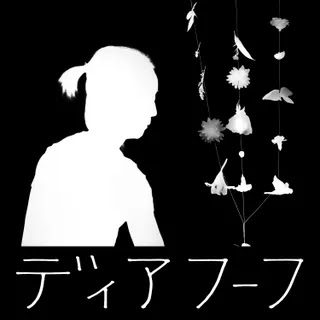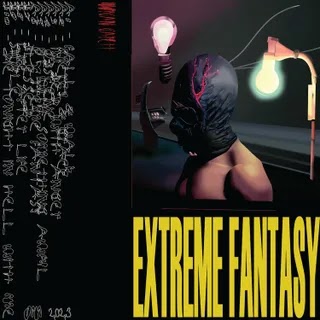Naeem Juwan steps away from the Spank Rock persona on an album that drifts between manic experimentation and somber fury. It’s the work of a freer musician, one unburdened by internet hype.
If you spent time online in 2006, there’s a chance you thought Spank Rock was cool. His music was a defining cog in the genre-mashing thunderdome that emerged alongside bloghouse; it was superficially exciting and quickly overwhelming party music, an abrasive and sometimes thrilling concoction of break-beat Baltimore club mixed with bass-heavy hip-hop, house, rock, and electronica. But unlike his collaborators from the same era, who found commercial success by evolving out of the internet pockets they started in—artists like Diplo, Santigold, and Benny Blanco—Spank, real name Naeem Juwan, stayed put, treading water in some mid-aughts fantasy. He quickly became a relic of his time; when I think of Spank Rock, whose debut album YoYoYoYoYo came out in 2006, I think of purple American Apparel hoodies and cups of froyo at Pinkberry.
Startisha, Juwan’s debut album under his first name, arrives six years after the last Spank Rock EP. It’s the work of a freer musician, one unburdened by internet attention, hype, or the need to stand out. Most importantly, though, it’s an attempt by a musical harbinger to prove, all these years later, that he does, actually, have something to say. For the past five years, Naeem worked on new music with producers Sam Green and Grave Goods, in Philadelphia, and with Ryan Olsen in Minneapolis. He popped up last year on Bon Iver’s i,i, earning a writing credit on the transcendent hymnal “U (Man Like)” and a personal tribute on album highlight “Naeem.” Startisha’s nine songs, two of which carry writing credits from Justin Vernon, are undeniably more personal than Naeem’s previous work. There’s something cathartic about an artist with such a purposeful persona finally shedding his layers, even when it doesn’t reveal as much as he might think it does. But this album is more for Naeem himself than any listener. And when it hits a sweet spot, drifting somewhere between manic experimentation and somber fury, Startisha shines.
That sweet spot is the Francis and the Lights co-write “Stone Harbor,” a warm tribute to Naeem’s longtime boyfriend. Green and Grave Goods’ production swells from a trip-hop bounce, layered with electronic horn flares to a full-bodied, piano-flushed sing-a-long; it’s a near perfect encapsulation of the internal chaos of missing a partner, a sensation both vulnerable and assured. “Every song I hear I think of you/Every love I’ve had I think of you,” Naeem repeats, like a prayer. Just as transportive is “Simulation,” which features Vernon and Swamp Dogg and takes a page from Kanye West and Vernon’s maximalist playbook, blending folksy keys with heavy 808s as Naeem raps, scattershot, about the Sandy Hook shooting, banned books, and the DC Comics character King Mob. He still knows how to party, though, dipping back into Spank Rock territory on “Let Us Rave” and the ridiculously fun “Woo Woo Woo,” a raunchy and cocky posse cut over a hiccuping Baltimore house beat that features Juwan’s long standing (and sorely underrated) collaborators Micah James and Amanda Blank.
It’s unclear, really, what Startisha is trying to say, beyond manifesting a fresh start for its protagonist. When Naeem tries too hard to tell us who he is, he stumbles—songs like “Us” and “Right Here” feel insular and half-conceived, and his verses, while not Spank Rock-level crude, have the pent-up, free-associative energy of long-restrained rambles. The album’s closer, “Tiger Song,” is a well-intentioned but exhausting attempt at something like a worldview, where Naeem’s pontifications about Malcolm X and Martin Luther King, Jr. are downright confounding. It’s unedited and raw, as inaccessible as a stranger’s scribbled journal entry.
It’s on Startisha’s title track, though, that we finally meet Naeem Juwan. The song tells the story of his childhood neighbor, Startisha, who appeared one day at a family get-together, drawn by the thump of the Baltimore club music playing, and danced with Naeem. He never forgot it. And over a dripping, fractured electronic symphony that’s part A.G. Cook and part Bon Iver, he unites both the awe he felt at the time, witnessing Startisha’s presence, and the nostalgia he feels for her now.
“Sometimes when I have time/I think of you and I wonder/Do you still move this way?” he sings. Nearly six minutes long, the song luxuriates in its remembrance; soaked in heavy drums, luscious horns, and dramatic vocal runs, it has the feel of a rediscovered home video, a simple but vivid origin story of an impressionable queer black kid watching a glamorous black woman dance. Naeem is singing about his radiant neighbor, but he’s also singing to himself: the one still in the closet as a boy in Baltimore, the one slamming sounds together on some blog in 2006, the one searching for an artistic identity, the one we meet, now, finally at peace with himself. “I’m still moving, I’m still moving, I’m still moving,” he sings, pained, as the song peters out. He’s assuring us, but really it feels like he’s reminding himself. When you’ve been stuck for this long, even the smallest hint of clarity can feel heaven-sent.
View the original article here
















0 comments:
Post a Comment